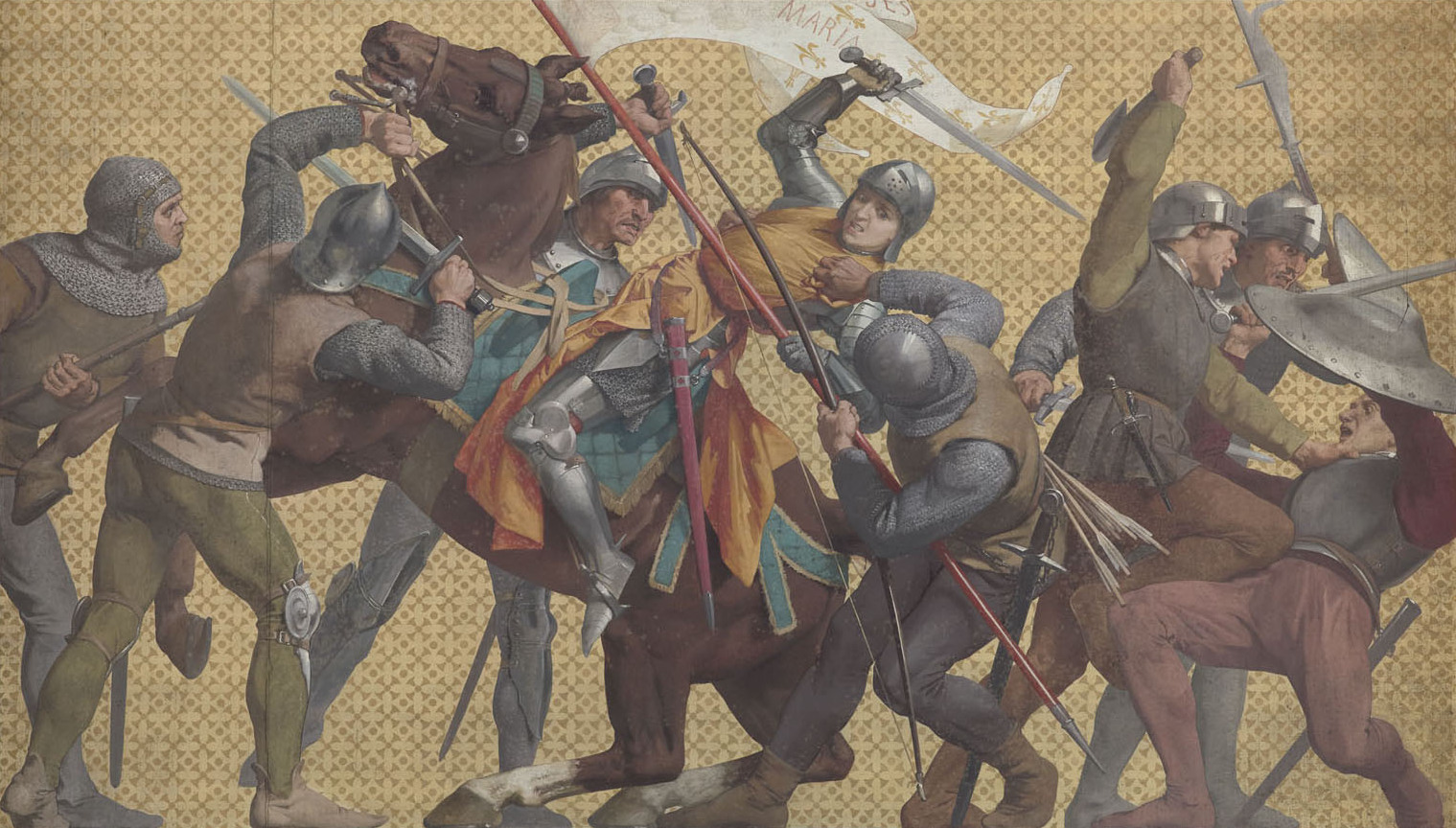After the rest day we start our stage in Orléans. Who else but Jeanne d’Arc (also known as Joan of Arc) should feature in our story today. She wasn’t born in Orléans but in a small town called Domrémy, in the east of France. Her name Maid of Orléans comes from the fact she was unmarried, and therefore a virgin, and Orléans, where she won her biggest battle.
But first let’s go back to the beginning. She was born in a family of farmers around 1412. Jeanne helped her parents on the farm and could have grown up like any young girl in that time: find a husband, have children, and tend to the family. But as you probably know, this was not the case.
Three years after her birth the French King suffered a huge defeat at the Battle of Agincourt. France, or what we now call France, was embroiled in many conflicts, especially after the last male heir of the Capetian dynasty died. The English King, but also the House of Burgundy, were all interested in that throne. How does a young peasant girl play a role in such a monumental power struggle?
When Jeanne was born, the English ruled in her town of Domrémy. Not far from her home the Dukes of Burgundy had their share of the country. The English burnt down the village when Jeanne was around 13 years of age. It was also at that moment she started to hear voices. It was clear to the 13-year-old that God called upon her to save France.
When she was 17, she convinced a local nobleman that she needed an audience with the King. Remember, there was a huge power struggle going on as to who was the rightful king of France but to Jeanne it was the seven-year-old Charles VII. He inherited the throne when he was a few months old and since his political position was rather precarious, he could use all the help he could get. Even when it was from a peasant girl dressed in men’s clothes saying she was a virgin and sent from God.
Jeanne received military training and proved to be a natural talent. She was also charismatic and a natural leader. They marched on Orléans and defeated the English there. Charles was impressed. Several more victories followed before they marched to Reims where Charles was crowned King of France. This is where Jeanne’s luck ran out.
Charles wanted a peace agreement with the English but Jeanne herself started to believe in her holy mission to get the English troops out of France altogether. Charles saw Jeanne as a burden now. She was still immensely popular in the country and respected in the army. When Jeanne was arrested by the troops of the Duke of Burgundy in 1430, it was very convenient to Charles. It was even better when they extradited her to the English. Charles didn’t do anything to save her when her trial started for heresy and witchcraft in Rouen in 1431. His two enemies had taken care of his problem. How convenient.
We all know how this ended. Jeanne was convicted of heresy, witchcraft, and for dressing in men’s clothing, and was burnt at the stake. Charles became a successful king who managed to drive the English out. Maybe it was his conscience or old age but he rehabilitated Jeanne's legacy at the end of his reign. The verdict for heresy was declared void. In 1909 Pope Pius X beatified her and Pope Benedict XV even canonized her in 1920. Jeanne's name day is 30 May.
Did we do a good job with this story?




